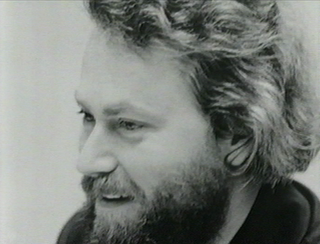A Quote by W. H. Auden
It is already possible to imagine a society in which the majority of the population, that is to say, its laborers, will have almost as much leisure as in earlier times was enjoyed by the aristocracy. When one recalls how aristocracies in the past actually behaved, the prospect is not cheerful.
Related Quotes
Society of leisure perhaps? Indeed, the most remarkable aspect of the transition we are living through is not so much the passage from want to affluence as the passage from labour to leisure. Leisure contains the future, it is the new horizon. The prospect then is one of unremitting labor to bequeath to future generations a chance of founding a society of leisure that will overcome the demands and compulsions of productive labor so that time may be devoted to creative activities or simply to pleasure and happiness.
The majority never has right on its side. Never, I say! That is one of these social lies against which an independent, intelligent men must wage war. Who is it that constitute the majority of the population in a country? Is it the clever folk, or the stupid? I don't imagine you will dispute the fact that at present the stupid people are in an absolutely overwhelming majority all the world over.
Machines have no political opinions, but they have profound political effects. They demand a strict regimentation of time, and, by abolishing the need for manual skill, have transformed the majority of the population from workers into laborers. There are, that is to say, fewer and fewer jobs which a man can find a pride and satisfaction in doing well, more and more which have no interest in themselves and can be valued only for the money they provide.
Imagine a country where the majority of the population reaps the majority of the benefits for their hard work, creative ingenuity, and collaborative efforts. Imagine a country where corporate losses arent socialized, while gains are captured by an exclusive minority. Imagine a country run as a democracy, from the bottom up, not a plutocracy from the top down. Richard Wolff not only imagines it, but in his compelling, captivating and stunningly reasoned new book, Democracy at Work, he details how we get there from here - and why we absolutely must.
Instead of an aristocracy of wealth, of more harm and danger than benefit to society, to make an opening for the aristocracy of virtue and talent, which nature has wisely provided for the direction of the interests of society and scattered with equal hand through all its conditions, was deemed essential to a well-ordered republic.
Nothing is quite so wretchedly corrupt as an aristocracy which has lost its power but kept its wealth and which still has endless leisure to devote to nothing but banal enjoyments. All its great thoughts and passionate energy are things of the past, and nothing but a host of petty, gnawing vices now cling to it like worms to a corpse.
Leisure, the highest happiness upon earth, is seldom enjoyed with perfect satisfaction, except in solitude. Indolence and indifference do not always afford leisure; for true leisure is frequently found in that interval of relaxation which divides a painful duty from an agreeable recreation; a toilsome business from the more agreeable occupations of literature and philosophy.
The art and architecture of the past that we know is that which remains. The best is that which remains where it was painted, placed or built. Most of the art of the past that could be moved was taken by conquerors. Almost all recent art is conquered as soon as it's made, since it's first shown for sale and once sold is exhibited as foreign in the alien museums. The public has no idea of art other than that it is something portable that can be bought. There is no constructive effort; there is no cooperative effort. This situation is primitive in relation to a few earlier and better times.
It may be a mere patriotic bias, though I do not think so, but it seems to me that the English aristocracy is not only the type, but is the crown and flower of all actual aristocracies; it has all the oligarchical virtues as well as all the defects. It is casual, it is kind, it is courageous in obvious matters; but it has one great merit that overlaps even these. The great and very obvious merit of the English aristocracy is that nobody could possibly take it seriously.
What have we got here in America that we believe we cannot live without? We have the most varied and imaginative bathrooms in the world, we have kitchens with the most gimmicks, we have houses with every possible electrical gadget to save ourselves all kinds of trouble - all so that we can have leisure. Leisure, leisure, leisure! So that we don't go mad in the leisure, we have color TV. So that there will never, never, be a moment of silence, we have radio and Muzak. We can't stand silence, because silence includes thinking. And if we thought, we would have to face ourselves.






































